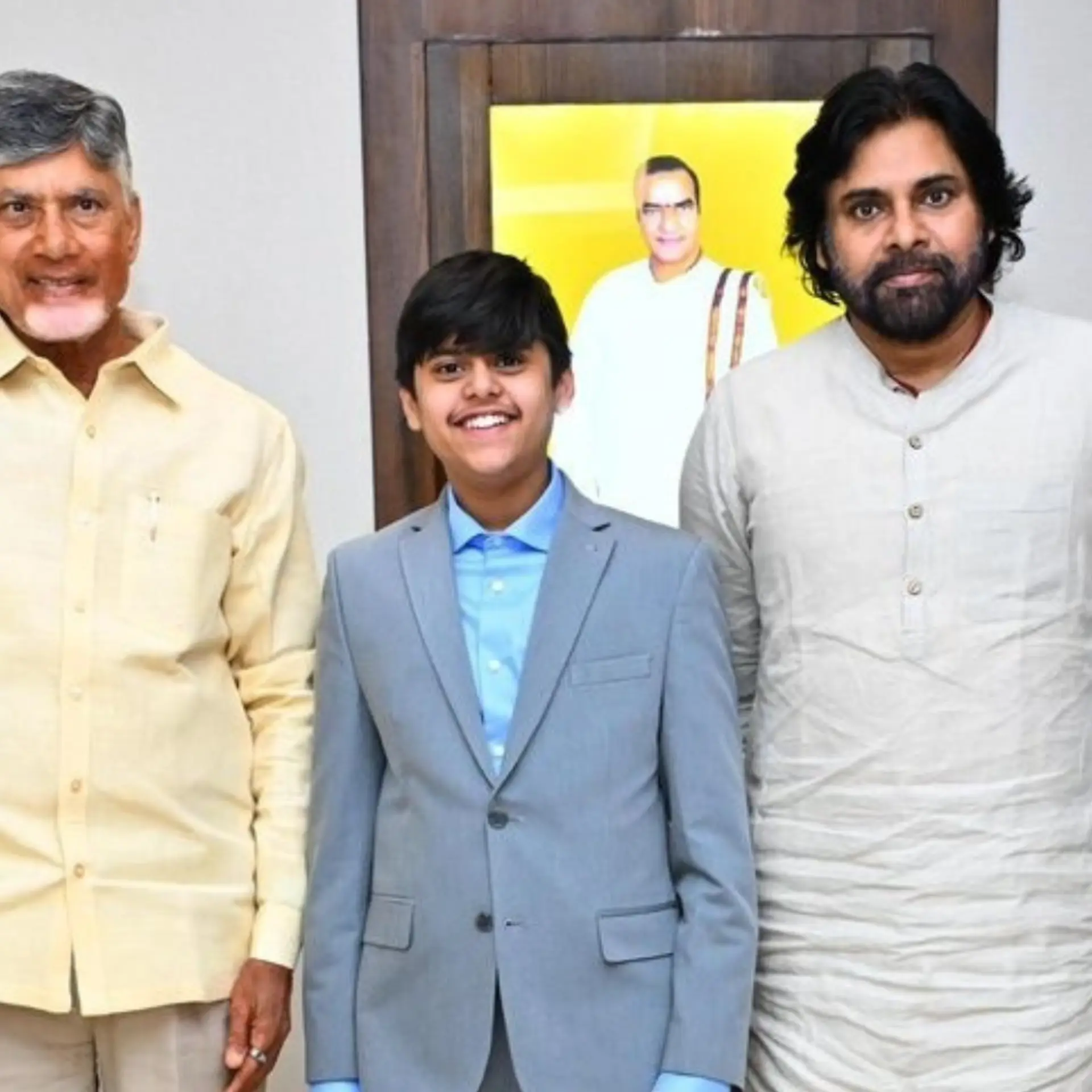[Women in Tech] It's not about how far you fall, but how high you bounce back, says Anjali Joshi of LocoNav
In conversation with HerStory, Anjali Joshi talks about her journey – from her time at IIT Kanpur, working at AT&T Bell Laboratories, serving as the VP of Product Management at Google, and joining LocoNav’s board of directors.
As one of the board of directors of fleet tech startup , Anjali Joshi’s focus is on enabling the company to fortify its vision of democratising fleet tech in emerging and high-growth markets.
Anjali has held leadership roles in several high-profile companies across the world, including AT&T Bell Labs and Covad Communications. She is known for bringing exceptional digital products to market and has served as the VP of Product Management at Google, managing Google's fibre-to-communities' effort, which brought ultrahigh-speed broadband access to people across the US.
“I now serve on the boards of several technology companies and in advisory roles to many startups. In 2010 I was selected as one of the top 50 alumni who graduated from IIT Kanpur in the last 50 years. In 2017, I was given the Distinguished Alumni Award,” says Anjali, in a conversation with HerStory.

Why choose LocoNav?
Anjali says she has been motivated by challenges throughout her professional career.
“When I learned about LocoNav, I was intrigued by the company’s vision of democratising access to fleet tech. They are leveraging the power of technology to create an incremental and positive impact in the lives and livelihoods of everyone in the fleet management industry. It is exciting to be a part of their journey and unlock opportunities and technology-led efficiency for over 250 million commercial vehicle owners and drivers in emerging markets,” she says.
She adds that her first conversation with Vidit Jain and Shridhar Gupta, the Founders of LocoNav, was focused on best practices for startups as they grow the company aggressively across emerging and high-growth markets.
“I hope to share my experience in building scaled product platforms to enable them to grow to be a global market leader. I also plan to bring my experience in working in emerging and developed markets to guide the company’s acquisition and expansion strategy as it establishes a presence in key geographies,” Anjali says.
She says the global fleet economy is a trillion-dollar industry worldwide with a huge opportunity to leverage technology to gain efficiencies. In the last decade, several technology companies have emerged in developed markets to address driver and fleet owners’ needs. However, these services have not been readily available in emerging markets.
The industry is fragmented and does not use modern technology in emerging markets like India and many parts of Africa, Latin America, and even South East Asia and Australia.
Early love for the sciences
Anjali’s love for the sciences and engineering began early on. She was the second child in a middle-class Indian family; her father was an engineer at ONGC and mother was a college graduate and homemaker.
“Similar to most families of that generation, education was considered very important in my family. However, unlike many other parents of that era, mine did not make a distinction between boys and girls and ensured that my brother and I were both given the best education and opportunities,” Anjali recollects.
This that promoted her to study science and mathematics and like her brother she took the JEE examination and went to do her BTech at IIT Kanpur.
“I graduated with a degree in electrical engineering in 1981 and then left for the US to get my master’s degree in computer engineering at the State University of New York at Buffalo. After working in the semiconductor industry for a few years, I got another master’s degree in engineering management at Stanford University in California,” she says.
Time at IIT Kanpur
Anjali calls IIT Kanpur a remarkable institute, saying it had been set up in collaboration with the top technical universities in the US and followed teaching and grading practices that differed from other colleges in India.
“The professors there were enthusiastic, passionate, and inspired teachers. They held us to very high standards and taught us to think from first principles. My classmates were just as remarkable - intelligent, creative, and fun loving. They came from a variety of backgrounds and had a lot of interests outside the classroom,” she says.
She was part of the Television Centre where they created programmes for the campus population, participated in several drama productions, played badminton, and was part of the film and music clubs.
“The most important lessons I learned in college were to remain curious, keep learning, and be open to new challenges. Over the last 50 years, technology has moved at an incredible pace and when I graduated I could not have even imagined the work that I am doing today. This ability to learn new skills and technologies has been essential in my career as I have traversed many technical areas from semiconductors to consumer internet services and functional areas from engineering to product and business.”
Early days of the internet
After graduating in 1989, from State University of New York at Buffalo, Anjali joined AT&T Bell Laboratories and spent several years working in the areas of voice and high-speed data communications.
“Those were the early days of the internet and the world wide web as we know it today was very nascent. My early experience in that field provided the technology foundation that has proved to be very useful to me throughout my career,” she says.
In 1998, Anjali moved to Covad Communications, a company that provided high-speed internet access to homes and businesses, and rose to be the Executive Vice President of Engineering.
“In that role, I helped the company grow from a startup to a public company. Following that, I joined Google in 2006, where I spent more than a decade leading teams focused on the software, network, and computing infrastructure, Maps, Search, and many other core products. One of my most exciting roles at Google was to be able to develop products for the next billion users and drive strategic investments in companies in India,” Anjali says.
From an individual contributor to an executive
Navigating the varied stages of her career - from an individual contributor to an executive - taught Anjali something new and helped her leverage the next opportunity.
“The first five years of a person’s professional life should be about experimenting, learning, and doing. The early years of your career should be spent understanding what you are interested in and how you like to work. It is good at this stage to change jobs and try different areas and roles.
“When I started my journey, I was an individual contributor as a chip designer but soon realised that while I liked engineering I did not like to work alone and enjoyed being part of a team. I also learned that I liked working on large-scale projects and on innovative technologies that impacted people's lives,” she says
Anjali advises that when transitioning between roles, one should keep their own goals as well as the goals of the organisation in mind. The organisation should benefit from your skills and knowledge, and you should have scope to grow.
“If you take on a role that you are completely proficient at, you will not be challenged; if you take on something completely new, you will not be productive and valuable to the organisation in the short term,” she says.
At Google, Anjali worked in various roles in a 12+ year span, starting from infrastructure, moving to maps and then to search.
“Each role was significantly different from the previous one and in each one I was able to expand my learnings while accomplishing significant goals,” she says.
Advice to leaders
Different leaders have different leadership styles. However, at the core of effective leadership are few principles. The first is competence.
“I once attended a talk by Dr Christine Darden, one of the women NASA mathematicians portrayed in the film Hidden Figures. She was asked how it was being a black woman in engineering at that time. She replied matter of factly: ‘You have to do your job and do it well. This will always hold true; to be a leader in any field you must first be good at what you do'.”
Second, don't be just a manager on the sidelines; be a part of the ups and downs of your team’s journey, take ownership, and be accountable.
“It is important that your team feels truly supported so that when times get tough, they have the grit to keep going and overcome the challenges. These lines from Theodore Roosevelt’s speech have always resonated with me: ‘It is not the critic who counts, not the man who points out how the strong man stumbles. The credit belongs to the man who is actually in the arena’.”
Third, it is important to have patience, stay optimistic, and be resilient. Accomplishing ambitious goals takes time and the journey is never straightforward.
“You will invariably stumble at one time or another. Failure is a part of the process and provides great learning lessons. Dwelling on the details of what went wrong is not productive but learning from your mistakes is very important. The focus should be on recovering quickly and moving on - it's not about how far you fall, but how high you bounce back. Additionally, cultivating the habit of listening goes a long way - not only making your team feel heard but also because the more informed you are, the better you are at making good decisions,” Anjali says.
Women in STEM
On Women in STEM, Anjali adds India produces the largest number of women graduates in STEM, yet only around 14 percent of STEM jobs are held by Indian women.
In addition to a lack of support from families for getting an education, or pursuing a career, there is also the widely held belief, often by women themselves, that they are not skilled at STEM subjects. The lack of female representation in STEM, whether it is educators or professionals, is a further deterrent.
“My advice is to boldly reach for opportunities in science and technology. While STEM is a challenging field, it is both interesting and impactful. Don't wait on the sidelines; have faith in your abilities, and figure out the perfect STEM programme based on your interest.
"STEM education can help in building an advanced society, one which helps students become innovators enhancing their critical thinking, helping them to build problem solving, creative, and collaborative skills,” Anjali says.
Edited by Teja Lele


![[Women in Tech] It's not about how far you fall, but how high you bounce back, says Anjali Joshi of LocoNav](https://images.yourstory.com/cs/4/a9efa9c02dd911e9adc52d913c55075e/AnjaliJoshi-1642942146672.jpeg?mode=crop&crop=faces&ar=2%3A1&format=auto&w=1920&q=75)


![[YS Exclusive] After Ola, why Pranay Jivrajka decided to start in the men’s sexual wellness space](https://images.yourstory.com/cs/2/a9efa9c02dd911e9adc52d913c55075e/Pranay-1642070411153.jpeg?fm=png&auto=format&h=100&w=100&crop=entropy&fit=crop)




